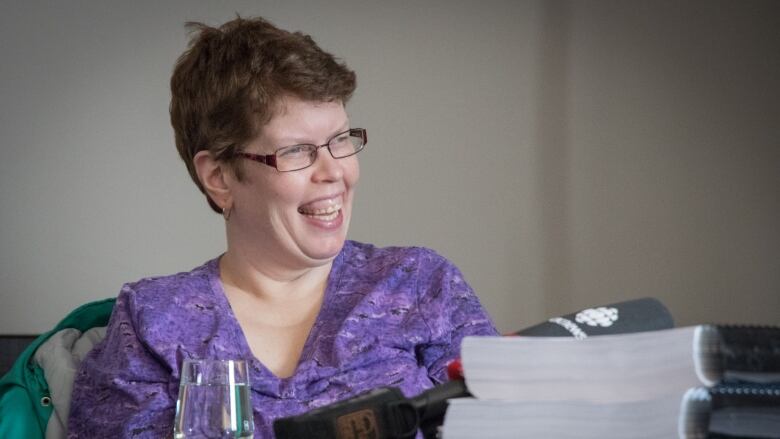N.S. woman's move to adult facility required ministerial approval, inquiry told
Beth MacLean has testified she asked to live in home-based environment rather than institution

A human rights board of inquiry heard more testimony Monday about the difficult life of Beth MacLean.
MacLean, who has an intellectual disability, was first housed in a lockedunit at an institutionwhen she was 14.
Her move into the unit at the Kings Regional Rehabilitation Centrein Waterville, N.S., in1986 required ministerial approval because it was an adult facility.She later spent 16 years living in a locked unit of the Nova Scotia hospital.
"It was very inappropriate to be put in an environment where people are much older," said Jim Fagan, director of resident services at the Regional Residential Services Society.
Fagan is the latest to offer testimony at the Nova Scotia human rights board of inquiry.
Lawyers for MacLeanand two other complainantsallege the province is violating their basic human rights by forcing them to live in institutionalized care instead a smaller, community-based support home.
In his testimonyMonday, Fagan saidMacLean was assessed in 2014 to determine whetherit was appropriate to move her out of the Nova Scotia Hospital's Emerald Hall into a community-based support home.
'We could have supported Beth'
Fagan saidin spite of her bouts of aggression, she would have been accepted in a community-based home.
"We could have supported Beth even if she was a risk to herself or others," Fagan said. "And there are people living in the community who would present a risk for herself or others that are still living in the community very well, that at time to time need a lot of support."
Fagan described MacLean's life at Emerald Hall as fraught with loneliness and isolation, andsaid there is very little opportunity there for residents tolearn new skills.
Fagan also saidthe two other complainants named in the case, Joseph Delaney and Sheila Livingstone, who is now deceased, would have also qualified to live in a community-based home.
The lawyer for the complainants, Vince Calderhead, saidif their cases succeed, it could open the door to others who want to leave institutionalized care and move into community housing.












_(720p).jpg)


 OFFICIAL HD MUSIC VIDEO.jpg)
.jpg)



























































































